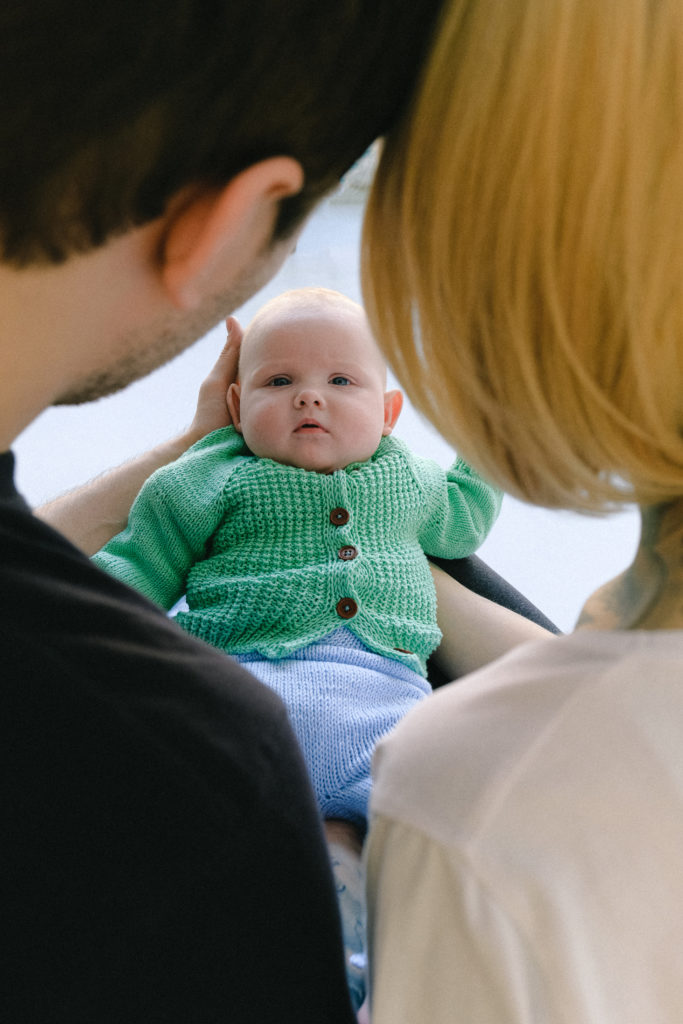While a lot of new dads are eager to get started on their fatherhood journeys, the sad truth is that most of them have no clue where to start.
If you have been wondering how dads can help with newborns, these few tips should offer lots of insight into some of the things you can do.

First published on July 23, 2020 by Vivek Kumar Singh
Congratulations on your new-found daddy status! You are probably over the moon about your little one! As you should be because becoming a father is a huge milestone for any man and you should be extremely proud of yourself.
While a lot of new dads are eager to get started on their fatherhood journeys, the sad truth is that most of them have no clue where to start. There is a very limited backdrop of quality starter-fatherhood examples to refer to because only a few decades ago, dads were notorious second-string players when it came to caring for infants.
Well, if you have been wondering about how dads can help with newborns, here are a few new-dad tips that you can use to help your partner during the first few weeks of parenthood.
1. Help mom take care of herself
Regardless of how your partner delivers, it’s going to take some time for her to recover. Pregnancy and giving birth have put extreme strain on her body, and she’s going to need all the help she can get to get back on her feet. The good news is that breastfeeding is the only job limited to moms. Dads can do everything else, from changing diapers, rocking the baby, and putting them to sleep. Don’t forget about lending your wife a hand in her own care, too. She needs all the rest she can get, and depending on how the delivery went, she might also need your help to take care of her health.
2. Help cheer the baby up
As you may have already realized by now, babies cry a lot. In fact, no amount of research will prepare you for just how bad the reality is. And there is very little you can do about the crying because that’s how babies express themselves. This means your main job is to try and get them to calm down. Play with them, make funny faces, talk to them, or distract them with toys. It’s all about understanding your baby and figuring out what works and what doesn’t.
3. Help with housework
Over the first few weeks, your partner’s hands will be completely full as she tries to figure out how to be a great mom. This means chores will pile up. It falls on you as the dad to pick up the slack on things like laundry, dishes, cleaning, and cooking. If you have no idea where to start, instead of burning dinner, you can start with simpler tasks like organizing baby’s clothes and your wardrobes then working your way up from there. This will really help your partner take a break from the action.
4. Take the night shift
During the first few months, your baby’s sleep cycle is controlled by hunger. Until you can build a routine together, this means that they’ll likely wake up about two or three times a night if you are lucky, and up to 5 times every night if you are not. If the night shift becomes 100% your partner’s job, it will leave her restless, fatigued, and sleep-deprived. This is not only bad for her health but also not safe for your baby. On the other hand, if you handle the night shift and take care of feeding and calming the baby down when they wake up at night, your partner will be able to get all the rest they so badly need and they will be in a better position to care for the baby throughout the day.
5. Change diapers and outfits
Diaper and outfit changes are never-ending when you have a baby. If left to one person, they can be downright exhausting. This is why you need to step up as a dad and help out. Take the initiative and learn how to change a diaper, how to change the baby’s outfits, and how to swaddle them. Your partner will thank you for it.

6. Go for walks with them
Becoming a dad does not mean confinement to your home. Sometimes, a change of environment is exactly what everyone needs, including your little one. Get a good quality stroller and head out with your child. Let them see that there is a much bigger world out there. Walks are also a great bonding experience for you and your baby. Frequent walks will make you feel closer to each other, and you will learn to appreciate your role as a dad even more.
7. Be interested in helping out and learn everything that you can
Taking care of a baby is not all fun and great times. There will be frustrating times and there will be boring repetitive tasks. Of course, there are also some really wonderful moments, but the catch is you have to be there for the not-so-fun ones to enjoy the memories that come with the fun ones. You also have to remember that there is no fatherhood gene. No one is born with the qualities of a good dad. Everyone learns of the job. Take the initiative to learn everything that you can about your baby. Read widely and do lots of research on the internet. This will really go a long way in helping you become a good, responsible father.
8. Ask for help when you need it
Everyone needs help sometimes. Learn to accept assistance when it is offered. When friends and family ask to bring in home-cooked meals, let them. It is alright for a friend to do a load of laundry for you, for your sister to take the baby for a stroll, or for your mother to change a diaper or two. If any opportunity for you to sit back, relax and even take a nap presents itself, grab it with both hands. Remember, it takes a village to raise a child.
9. Shop for your baby
Babies grow really fast. They are constantly outgrowing their outfits, which means you will be constantly shopping for new clothes. The good news is that there are lots of baby clothing stores online these days that you can use to browse and shop for new outfits in the comfort of your home. This makes shopping for your baby super convenient especially when your partner has her hands full caring for your little one.
Note: Pediatrician Tips is strictly a news and information website about pediatrics. It does not provide medical advice, diagnosis, or treatment. This content is not intended to be a substitute for professional medical advice, diagnosis, or treatment. Always seek the advice of your pediatrician, physician or another qualified health provider with any questions you may have regarding a medical condition for any person. Never disregard professional medical advice or delay in seeking it because of something you have read on this website. The opinions expressed in this column are not always those of Pediatrician Tips and are intended to spark discussion about issues pertaining to pediatrics and pediatricians.







